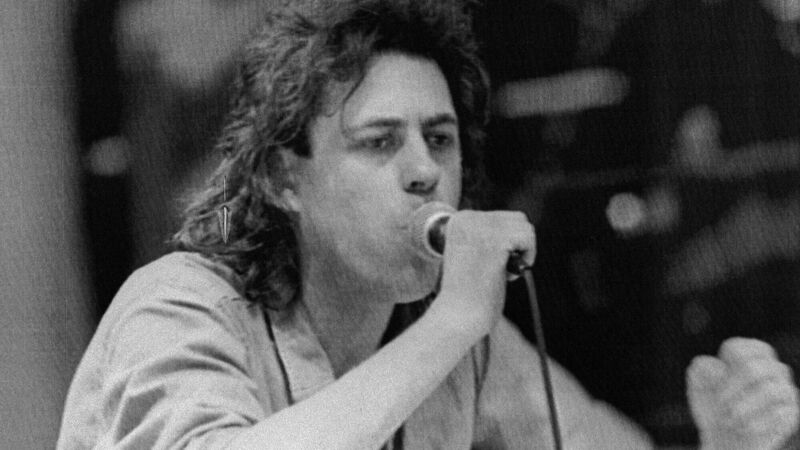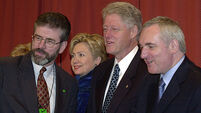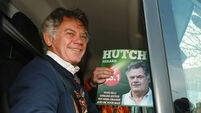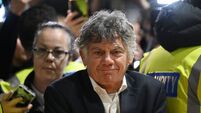State Papers: Geldof's own description of 'colourful character' ruled him out of Nobel nomination

Boomtown Rats singer Bob Geldof during the 'Live Aid' concert, billed as the biggest rock event in the world on the 13 July 1985. The 16-hour music marathon organised by Geldof raised money to help the starving in Africa. Picture: AFP/Getty Images
A self-appraisal by Live Aid promoter and Boomtown Rats lead singer, Bob Geldof of his own colourful character ruined his chances of a nomination for the second year in a row by the Irish Government for the Noble Peace Prize.
State files show the then Taoiseach, Garret FitzGerald, was considering nominating the singer and third world campaigner for the prestigious peace prize for a second time in 1987 because he felt Geldof had narrowly missed out the previous year when it was won by the writer, Elie Wiesel.














